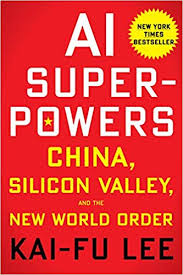For Digital Sundai Conversations we interviewed Raymond Alves, former director of the Rockstart AI program. No video interview this time, since Raymond was driving his car while providing us with the coolest insights. We summarized our key findings for you:
♦ Problem first, application second
Raymond: ‘Many AI startups use their technical knowledge and methodology to think of developing a certain application first, without clearly having in mind a real-world problem to which this idea can be applied. Successful startups think the other way around – identify a real-world problem or a market gap first, then start thinking of how AI can be part of the solution. Is the issue big enough to build an entire business around it? Is there any scaling potential? Explore the problem, then explore your options.
♦ Gain experience to see the complete package
Establishing a startup without some years of working in the field is possible, but chances are you lack important knowledge on how to identify a specific market gap, business need or how to build a business anyway. Besides, gaining work experience first can also provide you with the needed insights on both operational, financial or legal procedures. Knowing all ins and outs of the problem on a detailed level ensures you have a complete overview, so you start building on an application with an exact goal in mind.’
♦ Algorithms don’t determine success – mentality does
‘An impressive algorithm is nice, but the team’s entrepreneurial mentality really makes the difference. How well do you handle setbacks? How easily can you identify whether core capabilities can be applied in different contexts as well? In other words: how resilient and flexible are you? Make sure you have the right people on board or business partners close to you to handle every challenge your team might be facing.
Besides, paying attention to the wrong criteria for predicting success can be a pitfall. A promising revenue model and a well thought through marketing campaign are good assets to have in place, but they are often overrated. The most important criteria: growth. How can you continuously grow the amount of end users, and how often do they come back? That determines whether your startup has what it takes to be successful in the long term.’
And, last, but not least:
♦ Want to work with AI? Check out China
‘It wasn’t until my visit to China at the end of 2018 that I witnessed how extremely fast China’s AI economy is developing. With technology and innovation being on top of mind of Chinese leaders, companies and individuals, neglecting the developments happening over there would be a naive thing to do. I am especially curious to see how China’s development in the telecommunication networks and their different approach of privacy and data will most likely influence the Western ways of doing business.’
Want to find out more about China as an AI superpower? This book was the main motivator for Digital Sundai’s founder Robin Zondag to pay China a visit in early 2020!

